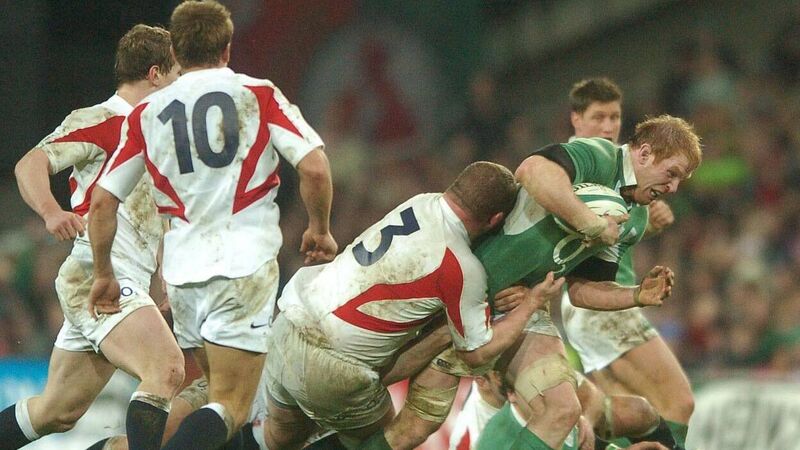Fergus Finlay: Stirring words of O'Connell can help us beat our greatest enemy

Ireland's Paul O'Connell driving past English captain Phil Vickery at Croke Park in the memorable clash between the two counrtries in 2007.
We’re facing a really deep crisis now. When I try to figure out how I want to address it, I think of David Ervine. And I think of Paul O’Connell.
David Ervine was a Belfast man, an egalitarian and a socialist. He was also a staunch loyalist, with a serious criminal conviction in his past. And a powerful peacemaker. We were briefly friends, before he believed I had let him down over something. (I hadn’t, but that’s a longer story).












